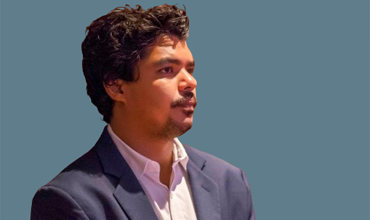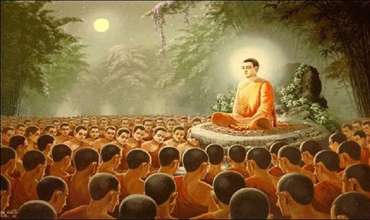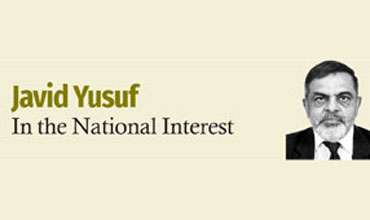Human rights have a skin color
By Thanzyl Thajudeen
Human rights have a skin color, and the darker you are, the less human rights you have. These exact words by Swedish MP Abir Al—Sahlani when speaking at the European Parliament on February 27 couldn’t have put it any way better. She said this when she stood up for Gaza, expressing that the hypocrisy is obvious and that our collective humane has failed.
Enshrined as the cornerstone of contemporary civilization, human rights aim to safeguard the inherent equality and dignity of every person. However, underneath the seeming universality is a brutal reality: skin colour clearly shapes how these fundamental rights are accessed and enjoyed. Here, we set out to disentangle the complex web of historical legacies, systematic biases, and societal constructions that link skin colour to human rights. We explore the core of this complicated subject, from centuries-old hierarchy to modern prejudice, in an effort to give light on the ongoing fight for justice and equality.
One must first face the lingering effects of racism and colonialism in order to comprehend the connection between skin colour and human rights. Global civilization has been shaped by ideas of racial superiority and inferiority from the time of European conquest to the transatlantic slave trade. Ibram X. Kendi in his book titled ‘Stamped from the Beginning: The Definitive History of Racist Ideas in America’ shows that by dehumanising indigenous peoples based only on their physical attributes, colonial powers were able to justify their exploitation and subjugation of these groups, establishing the groundwork for long-lasting oppressive institutions. The wounds from this past are still felt today, feeding the vicious cycles of injustice and inequality.
The underlying cause of the problem is structural racism and institutional inequality, which work together to maintain differences in treatment based on skin colour. People with darker skin tones face systemic marginalisation and discrimination in countries all over the world, as well as obstacles to housing, healthcare, work, and education. Social and economic institutions have been profoundly impacted by centuries of discrimination, resulting in deeply ingrained systems of privilege and disadvantage that disproportionately impact marginalised populations. The effects of systemic racism are long-lasting and widespread, affecting everything from the criminal justice system to the healthcare industry.
The issue of colorism, which favours those with lighter complexion to those with darker skin, widens the gap among groups of colour. Colorism fosters ideas of beauty, worth, and attractiveness based on skin tone. It has its roots in colonial hierarchies and is supported by media portrayals and society standards, as described in Toni Morrison’s book, The Bluest Eye. This type of prejudice marginalises people who straddle many identities even more by intersecting with other axes of oppression including gender, class, and ethnicity in addition to maintaining intragroup disparities.
Over continents, colonialism's echoes may be heard, leaving a legacy of oppression, exploitation, and dispossession in its wake. This is particularly noticeable in areas where the effects of colonial control are still felt, such as Palestine, Africa, the Congo, Asia, and the Middle East. Palestinians are still being oppressed and massacred and displaced from their homes, and now worse, forced starvation and famine in Palestine by the Israeli occupation, and Western nations are complicit in this by continuing to give, and in some cases now is actively involved on the grounds, in the apartheid criminal nation unflinching military and diplomatic backing. Comparably, the continent of Africa struggles with the long-lasting effects of colonial exploitation as Western businesses continue to pillage its abundant resources, causing poverty and instability to persist. Millions of civilians in the Democratic Republic of the Congo have been left homeless and displaced as a result of resource-driven wars that are supported by Western interests.
It is impossible to overestimate the influence of the media on stories and attitudes. Sadly, sensationalism, prejudice, and misinformation too frequently overshadow the experiences of marginalised populations. Western nations reporting on wars in places like Yemen, Syria, and Myanmar, and the ongoing genocide and ethnic cleansing of Palestine, frequently repeats oversimplified narratives that fall short of expressing the complexities of the underlying problems, and moreover they continue to lie, deceive and change narratives. Rather, by reinforcing preexisting assumptions and misconceptions, these narratives contribute to maintain a narrative of superiority and further entrench inequality. Furthermore, nations with a history of horrific human rights violations continue to have strategic relationships with Western powers, demonstrating the preference for geopolitical objectives over concerns for human rights.
Human rights certainly have a skin color. And sadly those in the West think that the East or the Global South has so many violence and brutalities that they need to come here to teach what human rights is. Rather, it is they who should really learn what those two words are. The universality of human dignity is undermined and inequality is perpetuated by the hypocrisy of human rights, which is highlighted by systematic racism, colonial legacies, and media misinformation. It is critical that we address these differences head-on as we negotiate the complexity of a globalised society, working for justice, equality, and human rights for everyone, regardless of background or skin colour.
A diversified strategy that both acknowledges historical injustices and aggressively tackles systematic inequality is needed to address the hypocrisy of human rights. Holding governments and companies responsible for their acts, amplifying the voices of the marginalised, and increasing awareness are all made possible via advocacy, education, and grassroots activity. Additionally, establishing intercultural communication and solidarity is crucial to tearing down long-standing oppressive structures and creating new ones. For this, the Global South or the East should rise, tall and strong. And in time, it will.
-
Still No Comments Posted.














Leave Comments